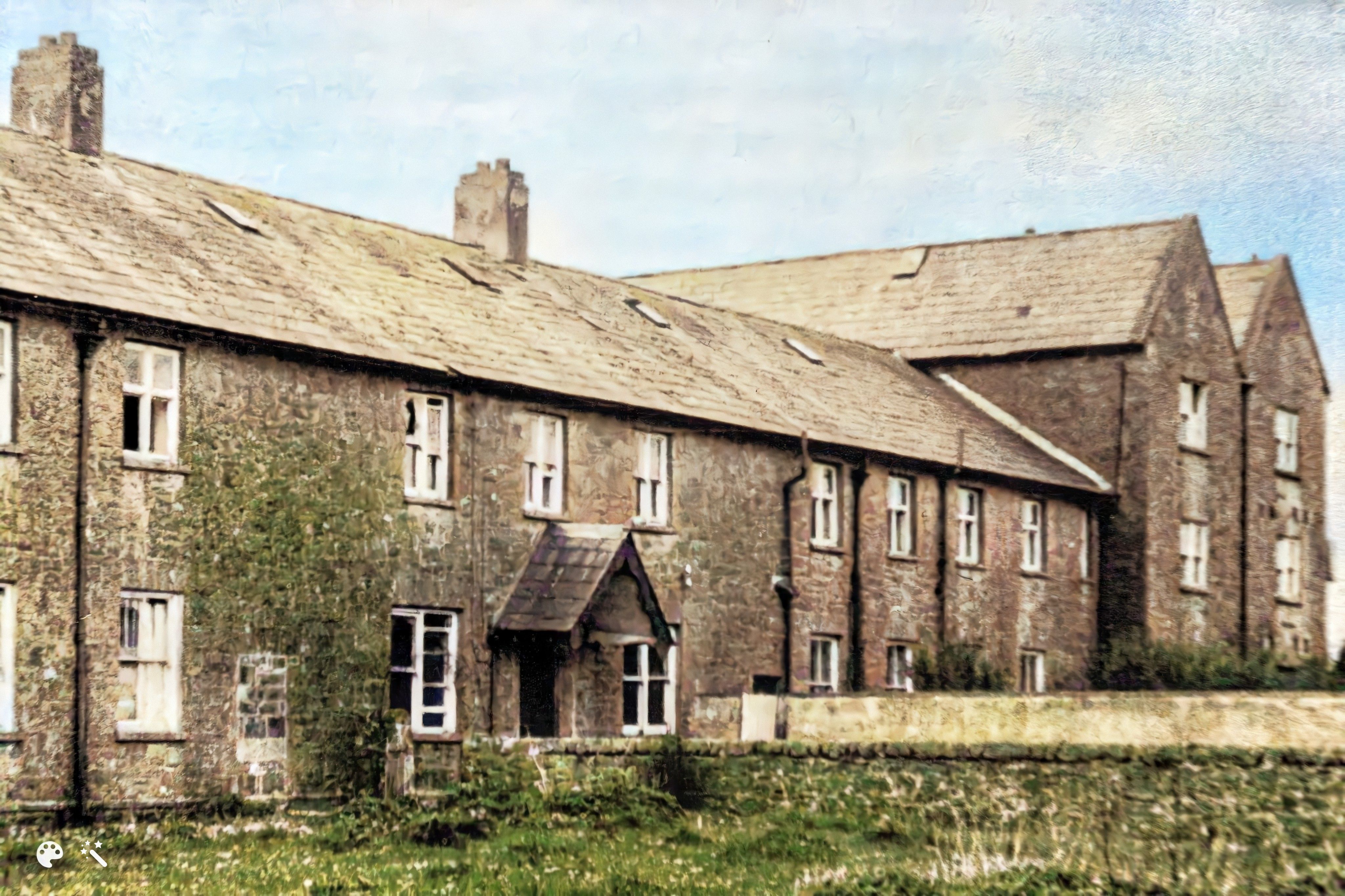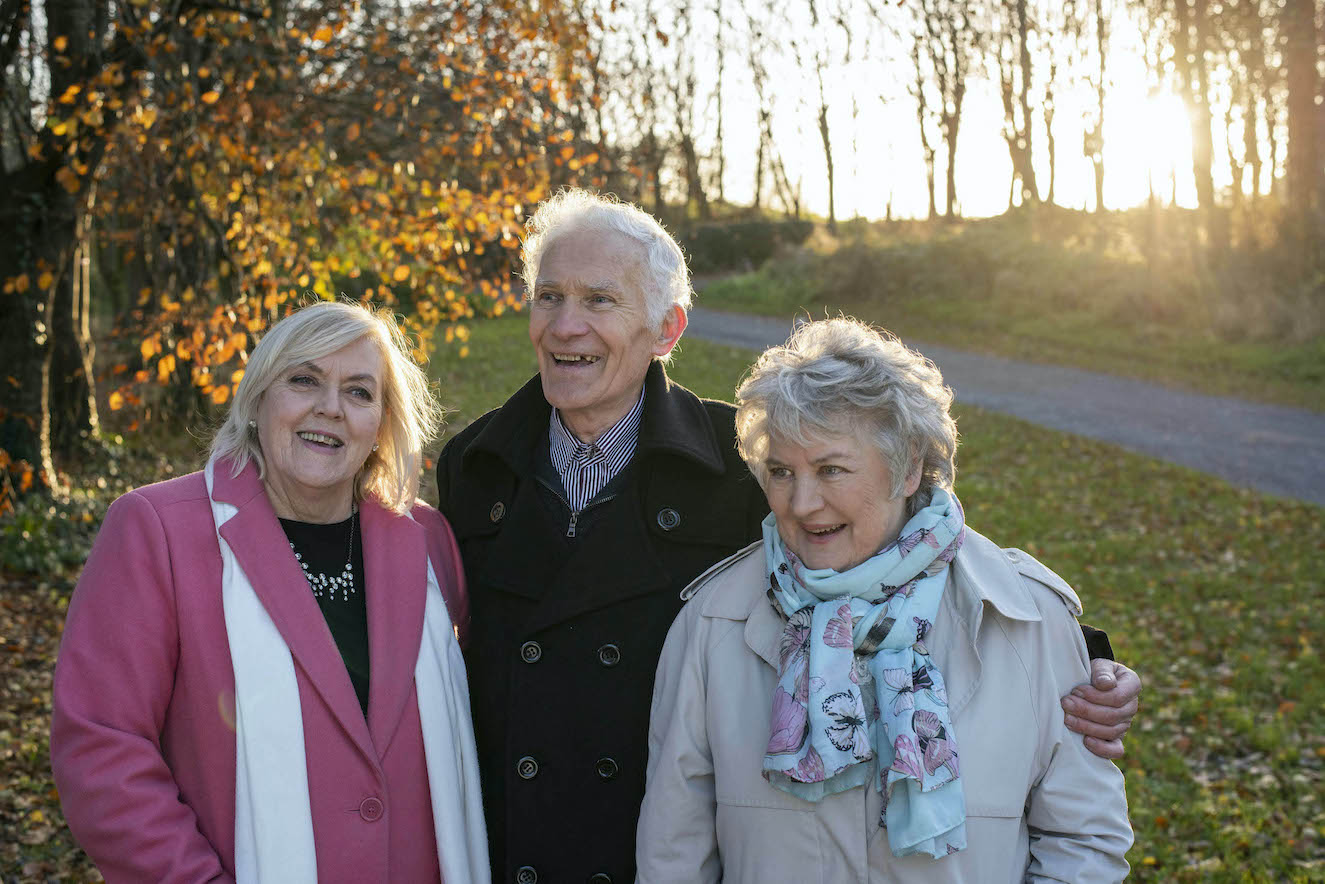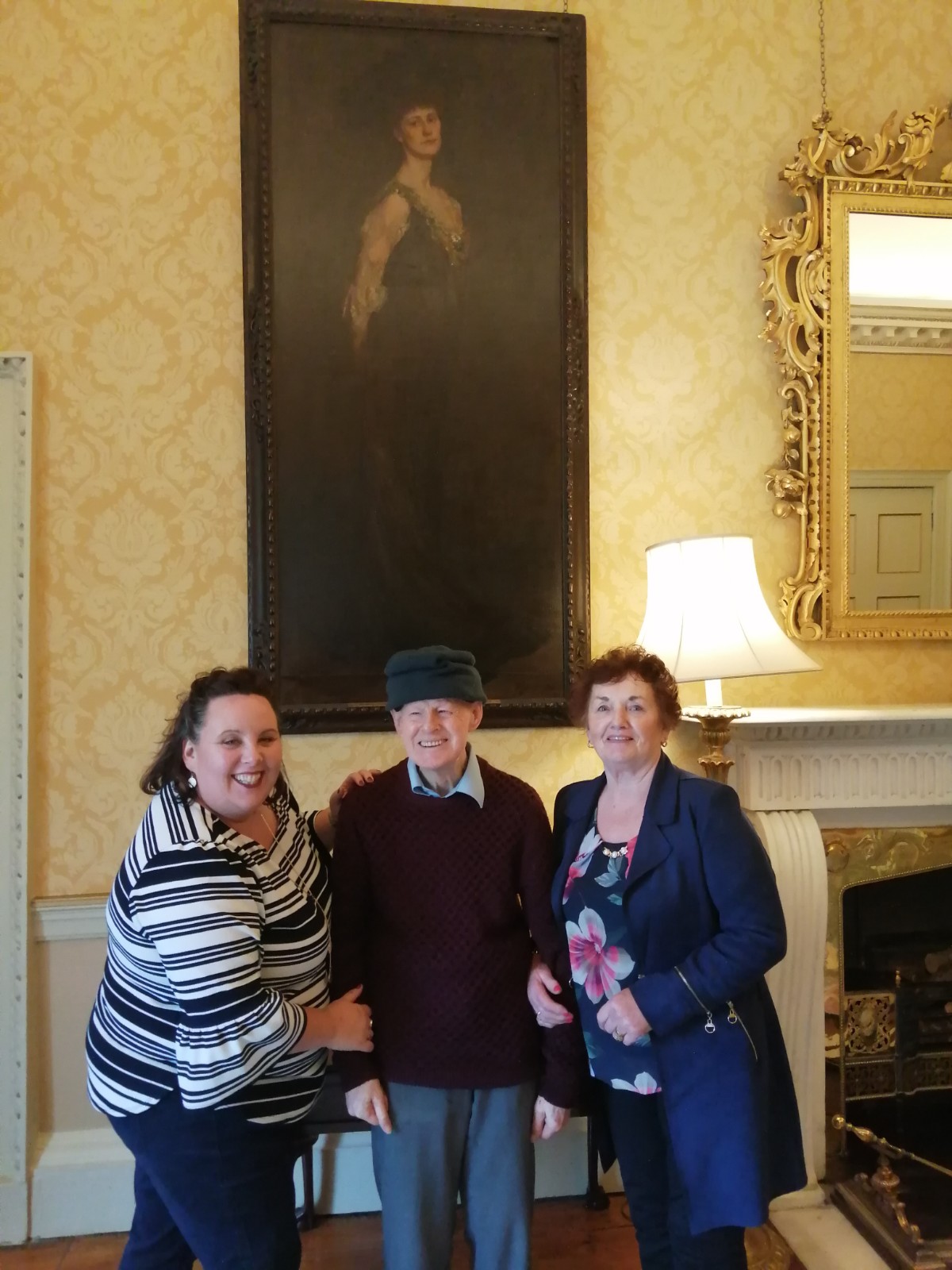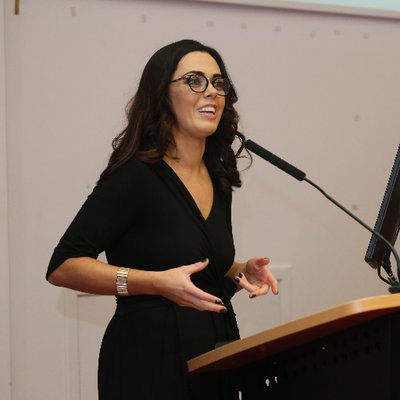
One Tuesday morning, a student arrived at my seminar, bleary-eyed and shaken. When I asked, ‘Are you ok?’, he explained he had stayed up all night reading Peter Tyrell’s Founded on Fear, an account of the writer’s childhood spent in Letterfrack Industrial School in the 1920s. Tyrell states that his time as a POW in the Second World War was better than his time in Letterfrack. His anger and hurt are palpable through his words (words sent to Owen Sheehy Skeffington that were only published thanks to the work of historian Diarmuid Whelan). After decades of attempting to raise awareness of the abuse and neglect he endured, Tyrell ended his own life by setting himself on fire in Hampstead Heath in 1967. His story has been a catalyst for me in my work as a historian. It shows the necessity of first-person narratives and testimony; we cannot understand Ireland’s institutional past without them.
As historians, it is important for us to document and preserve the dark history of institutionalisation in Ireland. From the Dublin Foundling Hospital in the eighteenth century, to the workhouses, prisons, lunatic asylums, Magdalene asylums, industrial and reformatory schools and later, mother and baby institutions. Consideration and thought must be given to the language we use, and the ways in which we represent and teach this history. As a historian of childhood and gender, I initially investigated the people and organisations involved in committing children to institutions, when poverty and ‘neglect’ was often the primary reason for committal. I work with any sources available – from court records to local authority records, newspapers and, when possible, the records of religious orders and State agencies involved. Unquestionably, the most powerful insights have come from personal testimonies. And in recent years, this is what I have engaged in – working with survivors to record and archive their testimonies and life stories.
In an all too familiar narrative, the lives of women and their children in Ireland were severely impacted by their socio-economic status and the religious norm of ‘respectability’ throughout the nineteenth century. We continue to grapple with the ripple effects today. The Mother and Baby Homes Commission of Inquiry has been criticised by many survivors, activists, academics, and those who engaged with the Commission. Throughout its operation, the Commission declined to gather or hear evidence in public, refusing to give transcripts to those who gave their testimony. Regarding the findings: the denial of the abuse of thousands of people has been rejected by many – a challenge which was subsequently upheld in the High Court.
As the redress scheme is based upon the flawed and unsupported findings of the commission, it has also received widespread criticism for grossly undervaluing the abused suffered, and excluding those who were adopted or otherwise separated from their mothers in an institution before the age of six months, as well as those who were boarded out or forcibly separated. While steps have been taken towards a National Memorial and Records Centre – a welcome step for many – successive governments continue to ignore concerns around redress, burials, excavation, and memorialisation. Survivors, those who were incarcerated, have always spoken out – even if society was not listening. Peter Tyrell, Paddy Doyle, Christine Buckley, Derek Leinster, too many to name. I have been fortunate enough to be involved in significant projects like The Tuam Oral history Project that have striven to document these voices.

The Tuam Oral History Project demonstrates, like previous projects (including the CLANN Project, Justice for Magdalenes Research and Waterford Memories) how a considered, survivor/person centred approach could provide a supported and non-adversarial way for individuals to tell their story. All current interviewees were born in the Tuam institution, which closed in 1961. Some were fostered/boarded out. Some were adopted. In July 2020 we released a three-part podcast series, ‘Other: Stories from the Tuam Mother and Baby Home’ which explores the stories of survivors Teresa O’Sullivan, Peter Mulryan and Christine Carroll, and the impact that the institution had on their lives. Narrated by Actor and Patron of the UNESCO Child and Family Research Centre at University of Galway, Cillian Murphy, the series is an invaluable resource highlighting the importance of personal testimonies.
These testimonies are one small piece of a larger puzzle, but an important one. A tapestry of details emerges: The County Home where their mother was placed, or maybe the Magdalene Asylum. The area where this group was fostered/boarded out, where lots of children were boarded out. The work they did without pay. The thirty years it took to find their mother. The families they have today. The connections and differences in their life stories, the diversity of these histories. All the testimonies are not yet publicly accessible, for varied reasons, but all those whose testimonies have been made available to date have chosen to use their own names. We owe them a huge debt for sharing their history.
Journalists too, such as Mary Raftery, Conall Ó Fátharta and Mike Milotte have written extensively, and in many ways, the public in recent years have empathised. Human Rights arguments continue to focus on the need for transitional justice, for redress, for memorialisation – yet the enormity of these histories remains out of reach. This is, perhaps, due to the fragmented ways in which the State have dealt with those affected. We have heard much since 1996 when Christine Buckley’s documentary, ‘Dear Daughter’ was aired, yet in many ways survivors, activists and allies still have a long way to go. Intergenerational trauma is only beginning to be acknowledged, as is the importance not only of gender, but social class, ethnicity, disability, and race in who was incarcerated and how.

‘The Man from God Knows Where’
In 2017, Caroline Canny and her family found out they had another relative. That relative was Tommy Canny, an 83-year-old gentleman, born in the Tuam Mother and Baby Institution in 1939. He is one of the oldest survivors of the Tuam institution. Having spent the first nine years of his life there, Tommy has since passed through three other institutions – Grace Park Road Asylum for the Blind, Clonturk House and another institution in Dublin in which he is currently resident. In the current institution, he is known as ‘The Man from God Knows Where’, an incredibly moving thought.
Tommy’s treatment in consecutive institutions echoes the treatment of these histories in many ways. As economic and childhood historian Johanna Skold has argued, “lived childhood must be narrated through memory,” and the memories and the archival records of these institutions “seldom tell the same story.”
After telling your story, the key step in being recognised is to be believed. I interviewed Tommy twice on Zoom with Caroline. He is visually impaired, and his speech is also impaired but he is interested, full of mischief and in some respects, unaware of how abandoned he has been by the Irish State. He loves clocks. He likes a pint. He likes to laugh. He has had money taken from him twice. He has been mistreated in every institution he has ever been in. He has family now, due to the family members’ efforts to find one another. He has a birth certificate, as a result of these efforts. He has some comfort, again, due to efforts of the family’s own. We have so far to go in recognising the life stories and wishes of survivors and individuals affected. Even if the headlines fade, we must ensure that pressure remains on those in powerful positions to listen and act.
Our National Story
By the early twentieth century, we were a nation intent on building institutions and placing large numbers of our citizens in them. That much is clear from studies like Ian O’Donnell and Eoin O’Sullivan’s Coercive Confinement in Ireland: Patients, Prisoners and Penitents. We were not alone in this, but we had one of the highest rates of institutionalisation per capita in the world in the mid-twentieth century, a claim few would wish for. If I have learned anything over recent years, it is that we can be incredibly cruel to other human beings if the right conditions are in place. That an obsession with morality and respectability will not create a kind society, and while people have enormous capacity for survival, some damage cannot be repaired. Until the history of Ireland’s institutional past is part of our national history – taught to our children like that of the Great Famine or the Irish Revolution – our national story is incomplete. I have also learned that coercive confinement, poverty, neglect, or abuse is likely a part of all our family history – or someone close to us. I have learned it is part of my own family history, in a multiplicity of ways.
Historians must engage with those directly affected by this history, to advocate for the preservation of records and free access by survivors/individuals affected to all their own records. We must ensure that this long and dark period in our history is discussed fully and openly – in contrast to the fragmented and divisive approach that the State and religious organisations have taken for decades. There is an urgent need for historical empathy: the process of contextualising how someone felt in a particular time or place, while assessing our own personal connection to that place. Searching and advocating for those who have been ignored is a critical part of connecting with our past. And a critical part of understanding our present.
Profiles

Dr Sarah-Anne Buckley is Head of the Department of History, University of Galway, and an internationally recognised scholar in the field of modern Irish social history, particularly in the fields of Irish gender history and the history of childhood and child welfare.
Buckley has conducted innovative research in the cognate areas of gender, sexuality, the history of childhood, youth, and institutions. Her research has had an impact in traditional academic and non-traditional contexts, including in her role as a public historian and contributor to public policies. She is regarded as a foremost expert in the history of childhood in Ireland, and one of the key historians working on gender history.
To date, her research has been cited in the New York Times and she has been interviewed by a range of media outlets internationally, including an article for CNN in 2019, contributions to BBC Women's Hour. These pieces have drawn on her expertise of the mother and baby institutions in Ireland and particularly the ‘Tuam Oral History Project,’ for which she is the Co-PI. She is also the Chair of the Irish History Student's Association (IHSA) and Past President of the Women's History Association of Ireland (WHAI). Her 2020 book with Professor John Bresilin Old Ireland in Colour was the winner of the An Post Book Award for ‘Best Irish Published Book’. She is originally from Cobh, Co. Cork.